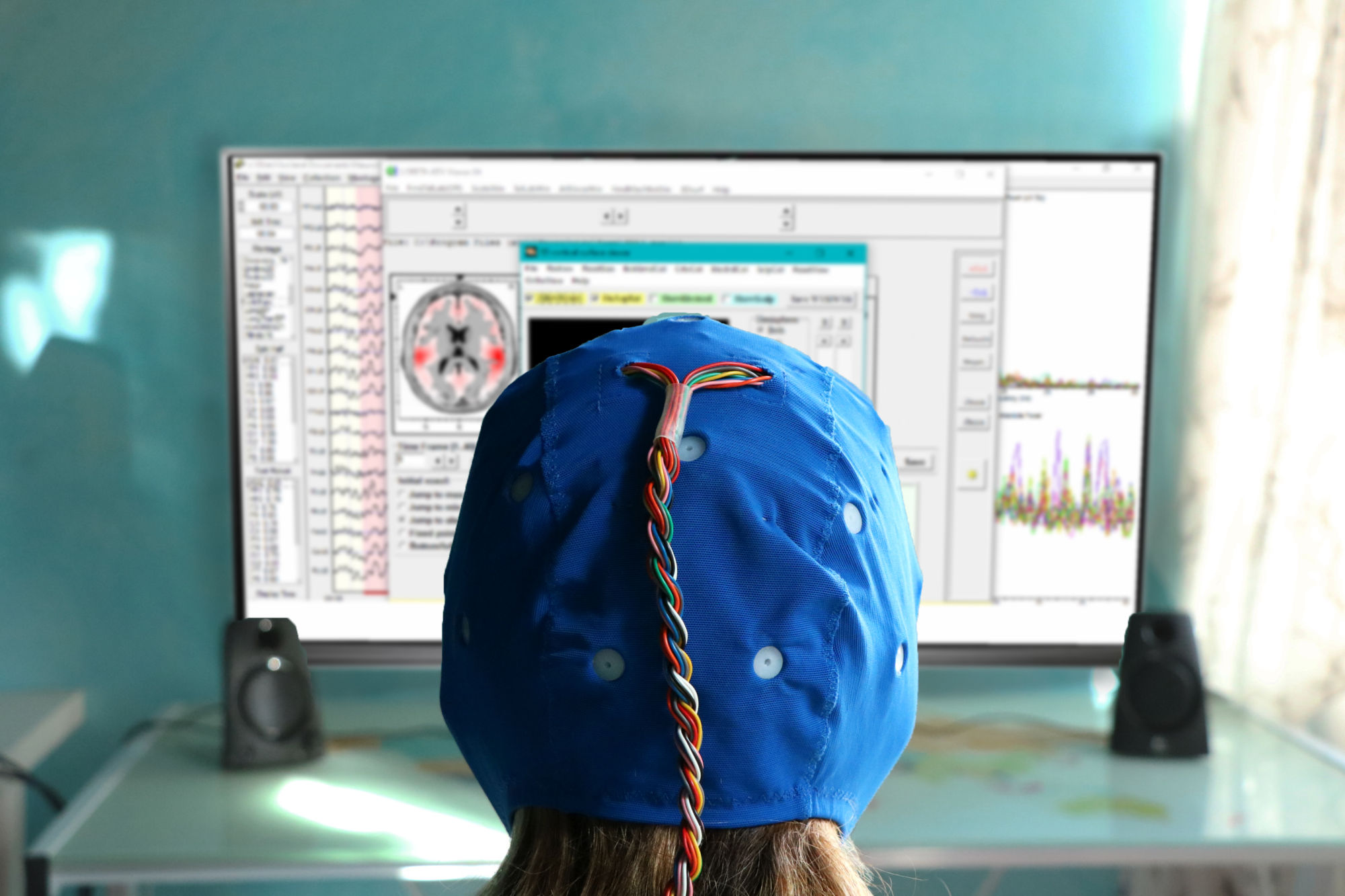Beyond Hours: Why Sleep Quality Matters More Than You Think

The Multidimensional Nature of Healthy Sleep and Its Impact on Heart and Brain Health
When discussing sleep health, most conversations revolve around a single number: how many hours you spend in bed each night. While the recommendation of seven to nine hours for adults remains vital, current research shows that this one-dimensional approach misses crucial aspects of sleep that significantly impact our cardiovascular and neurological health.
A comprehensive scientific statement published by the American Heart Association (AHA) in the journal Circulation: Cardiovascular Quality and Outcomes in April 2025 highlights how multiple components of sleep—beyond mere duration—affect everything from blood pressure and cholesterol to cognitive function and emotional health.
“There is increasing evidence that sleep health is about more than the number of hours you sleep each night,” explains Dr. Marie-Pierre St-Onge, chair of the statement’s writing group and associate professor of nutritional medicine at Columbia University Irving Medical Center. “Suboptimal sleep raises the risk for cardiovascular disease, along with the risk of cognitive decline, depression, obesity, as well as high blood pressure, blood sugar, and cholesterol levels.”
The Multifaceted Nature of Sleep
The AHA report identifies several key components that collectively determine sleep quality:
Sleep Continuity encompasses how long it takes to fall asleep, night wakings, total wake time during the night, and unplanned early awakening. Poor continuity—fragmented sleep with multiple disruptions—has been linked to increased risk for atrial fibrillation, heart attacks, hypertension, and insulin resistance. Even minor improvements in continuity can yield significant health benefits.
Sleep Timing: When you sleep matters, not just how much. Compared to earlier bedtimes, going to bed at midnight or later may increase the risk of obesity, insulin resistance, and hypertension. This component also involves whether sleep occurs primarily during daytime or nighttime hours, with nighttime sleep generally providing more excellent restorative benefits.
Sleep Satisfaction: Your subjective experience of sleep quality correlates with measurable health outcomes. Lower satisfaction with sleep quality has been associated with higher blood pressure, arterial stiffness, coronary heart disease, and non-dipping blood pressure (blood pressure that doesn’t decrease appropriately during sleep).
Sleep Regularity: Consistency in sleep patterns—going to bed and waking at similar times each day—appears crucial for cardiovascular health. Irregular sleep schedules have been linked to obesity, cardiovascular disease, hypertension, inflammation, and non-dipping blood pressure. Consequently, greater consistency correlates with a lower risk for cardiovascular mortality.
Daytime Functioning: How alert you feel during waking hours reflects sleep quality. Excessive daytime sleepiness has been linked with an increased risk of heart disease, stroke, and related mortality.
Sleep Architecture: The cycling between light sleep, deep sleep, and REM sleep affects how restorative your sleep is. Depending on which cycle gets disrupted, disruptions to specific sleep stages may have different health consequences.
“These components interact in complex ways,” notes Dr. Jeffery Wilson, Clinical Director at Sleep Recovery. “For instance, someone might get adequate hours but poor continuity, or excellent continuity but irregular timing. Each pattern creates different physiological effects that can’t be captured by duration alone.”
The Heart of the Matter
Your heart never gets a day off, but it does expect some downtime at night. The American Heart Association has already recognized sleep duration as one of its “Essential 8” factors for heart health. Now, it’s acknowledging that quality matters just as much as quantity.
When I recently chatted with a cardiologist friend, she said, “I see patients who swear they’re getting their eight hours, but they’re still exhausted, and their blood pressure’s through the roof. Then we discover they wake up 30 times a night without realizing it.”
Fragmented sleep keeps your stress hormones elevated and inflammation brewing—two things your blood vessels don’t want. And when your sleep schedule is all over the map, your body’s natural rhythms for controlling heart rate and blood pressure get thrown off kilter.
Even more concerning, non-dipping blood pressure—when blood pressure fails to decrease typically during sleep—is strongly associated with fragmented sleep and irregular sleep patterns. This condition significantly increases the risk of heart attack, stroke, and kidney disease.
“The cardiovascular system relies on proper cycles of activity and recovery,” explains Dr. Wilson. “When sleep quality suffers, the heart and blood vessels don’t get the recovery time they need, creating a state of chronic physiological stress that accelerates cardiovascular aging.”

The Bioelectric Perspective
Understanding the relationship between sleep quality and health requires looking at the brain’s electrical activity during different sleep stages. EEG (electroencephalogram) patterns reveal how effectively the brain cycles through the regenerative processes during sleep.
“Healthy sleep shows characteristic brainwave patterns that support memory consolidation, emotional processing, and cellular repair,” explains David Mayen, Founder and Program Director at Sleep Recovery. “When sleep quality suffers, these patterns become disrupted in ways that directly impact cardiovascular and metabolic function.”
Delta waves dominate during deep sleep and are essential in releasing growth hormones, reducing inflammation, and consolidating immune function. When sleep continuity or architecture is compromised, delta wave activity typically decreases, reducing these restorative processes.
Similarly, theta waves during REM sleep support emotional processing and memory integration. Disruption of REM sleep—familiar with irregular sleep patterns or poor continuity—can contribute to mood disorders and cognitive decline.
“The bidirectional relationship between brain activity and cardiometabolic health becomes clear when we look at sleep from a bioelectric perspective,” notes Mayen. “Normalizing these brain activity patterns often leads to improvements in blood pressure, inflammatory markers, and glucose regulation, even before changes in sleep duration occur.”
Sleep Isn’t Equal for Everyone
Not everyone has the same shot at good sleep. Over 300 studies have found that people with lower incomes and fewer resources typically sleep worse. It’s not just about making “better choices”—it’s about having the opportunity to make those choices in the first place.
Communities of color often face additional hurdles to quality sleep. Between noisy neighborhoods, shift work jobs, higher stress levels, and less access to healthcare for sleep problems, the deck is stacked against many people before they even lie down.
As my neighbor who works three jobs said, “I know sleep matters, but when your apartment’s above a busy street, your second shift ends at midnight, and your first shift starts at 7 am, what exactly am I supposed to do about it?”
Dr. St-Onge from the study acknowledged this reality: “Everyone has different sleep experiences, and these differences may contribute to other health inequities. Doctors need to understand these factors to provide better care.”
Comprehensive Approaches to Sleep Health
Given sleep’s multidimensional nature, effective interventions must address more than just sleep duration. At Sleep Recovery, the approach focuses on identifying and targeting the specific components of sleep most affected by each individual.
“Some people struggle primarily with continuity, taking a long time to fall asleep or waking frequently,” explains Mayen. “Others maintain good continuity but have highly irregular patterns due to work or lifestyle factors. Still, others might maintain adequate duration and continuity but report poor satisfaction or daytime alertness. Each pattern requires a different intervention strategy.”
These comprehensive approaches might include:
- Neurofeedback for Sleep Continuity: For those struggling with fragmented sleep, neurofeedback can help stabilize brain activity patterns to reduce night wakings and improve overall sleep architecture.
- Circadian Rhythm Training: For those with irregular sleep patterns or poor timing, structured light exposure and activity scheduling can help synchronize internal clocks.
- Sleep Environment Optimization: For those who are unhappy with their sleep despite adequate duration, adjustments to temperature, sound, light, and bedding can significantly improve their subjective experience.
- Cognitive Behavioral Interventions: For those with anxiety-related sleep issues affecting continuity or satisfaction, targeted cognitive techniques can reduce sleep-interfering thoughts.
- Sleep Stage Enhancement: Techniques to enhance slow-wave or REM sleep can improve the restorative quality of sleep for those with specific disruptions to sleep architecture.
“The key is recognizing that sleep is not a uniform system,” notes Dr. Wilson. “Different components contribute differently to health outcomes, and interventions must be tailored accordingly.”
Practical Steps for Better Sleep Quality
While professional guidance helps address significant sleep issues, several evidence-based practices can improve various aspects of sleep quality:
- Maintain Consistent Timing: Go to bed and wake up at similar times each day, even on weekends, to support sleep regularity.
- Create a Wind-Down Routine: Establish a 30-60-minute pre-sleep routine to improve sleep continuity by reducing the time it takes to fall asleep.
- Optimize Your Environment: Keep your bedroom dark, quiet, cool, and comfortable to enhance satisfaction and continuity.
- Limit Evening Stimulants: Avoid caffeine and alcohol before bed, as they disrupt sleep architecture and continuity.
- Manage Light Exposure: Get morning sunlight and reduce evening blue light to support healthy sleep timing.
- Address Stress and Worry: Practice relaxation techniques or journaling to reduce anxiety that impacts sleep continuity and satisfaction.
- Evaluate Daytime Functioning: If you experience persistent daytime drowsiness despite seemingly adequate sleep, consult a healthcare provider, as this may indicate underlying sleep disorders.
“Some changes in sleep across the life course are natural,” notes Dr. St-Onge. “However, individuals should not accept poor or worsening sleep as a ‘fact of life’ or an unavoidable consequence of the aging process. If they note new difficulties falling or staying asleep, or excessive daytime sleepiness, they should discuss this with their doctor for further evaluation and potential treatment.”

The Future of Sleep Health
The AHA statement concludes that advances are needed in how healthcare providers measure and analyze the full range of sleep components affecting health. Current approaches often focus too narrowly on duration or diagnosed sleep disorders, missing the opportunity to identify and address other aspects of sleep quality.
As research continues to clarify how different sleep components affect specific health outcomes, more nuanced approaches to sleep assessment and intervention will likely emerge. This evolution promises to transform sleep health from a simple numbers game—how many hours did you get?—to a more sophisticated understanding of sleep as a multidimensional contributor to overall health and well-being.
For those interested in learning more about comprehensive approaches to improving sleep quality beyond just duration, Sleep Recovery offers consultations that address all components of healthy sleep. Visit https://sleeprecovery.net or call 1-800-927-2339 for more information.
References:
- The Extraordinary Importance of Sleep. https://pmc.ncbi.nlm.nih.gov/articles/PMC6281147/#:~:text=New%20sleep%20deprivation%20studies%20confirm,impaired%20immune%20functioning%2C%20and%20more.
-
Sleep is essential to health: an American Academy of Sleep Medicine position statement. https://jcsm.aasm.org/doi/10.5664/jcsm.9476
- American Heart Association: Why Your Brain Needs Sleep. https://youtu.be/Ov8JpRWdEZc?si=gCNHeNDF3jFVxb_r
- Authenticity Show: Brainwave Entrainment for Insomnia;
-
Evaluation of alpha neurofeedback training to enhance sleep in remitted depression and anxiety sufferers with persistent insomnia. https://www.sciencedirect.com/science/article/abs/pii/S0165178125000502#:~:text=Alpha%20neurofeedback%20training%20mitigated%20insomnia,training%20might%20reduce%20sleep%20misperceptions..
